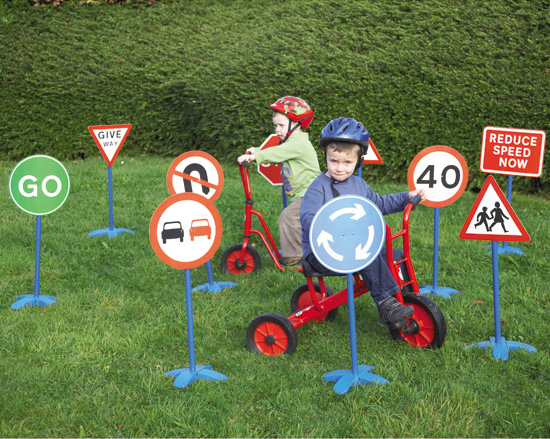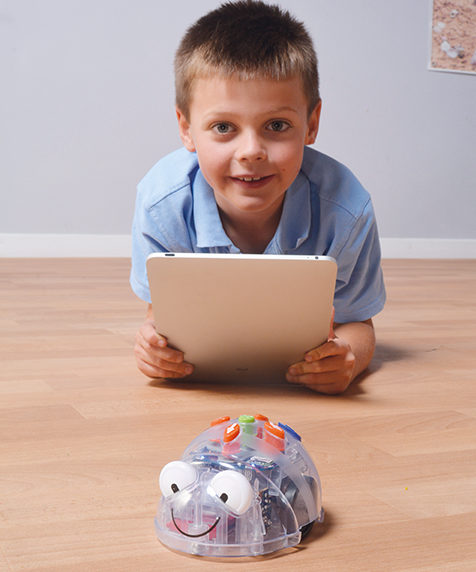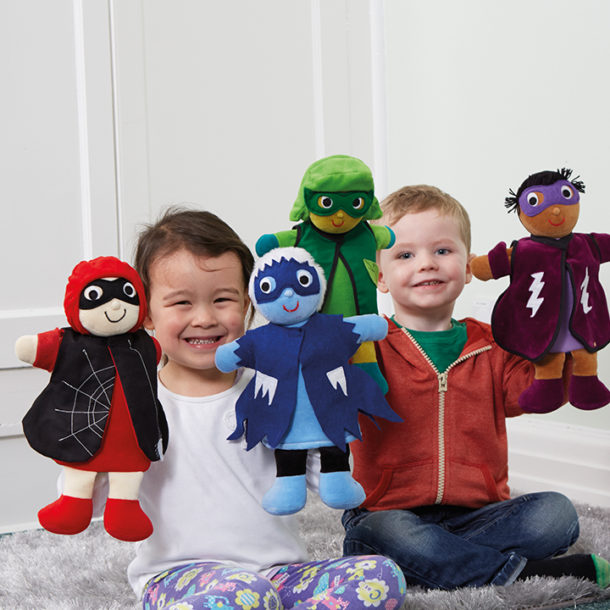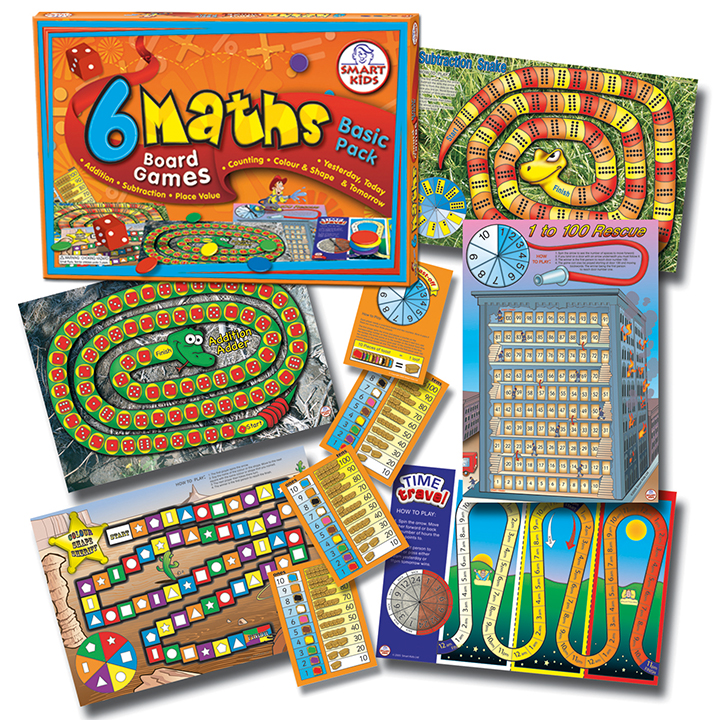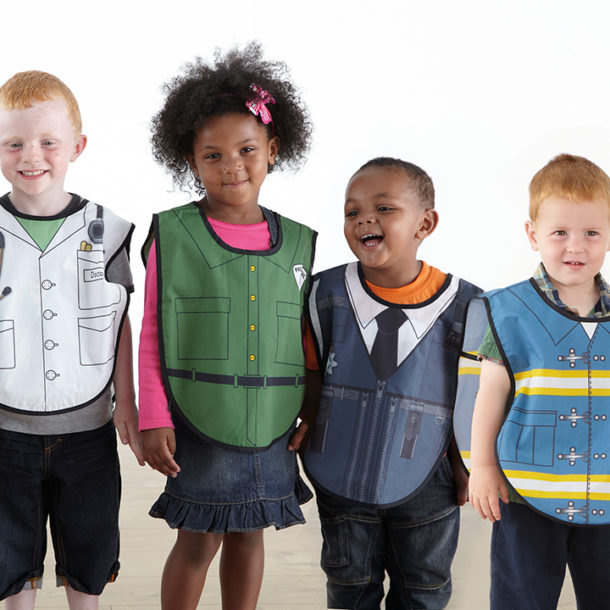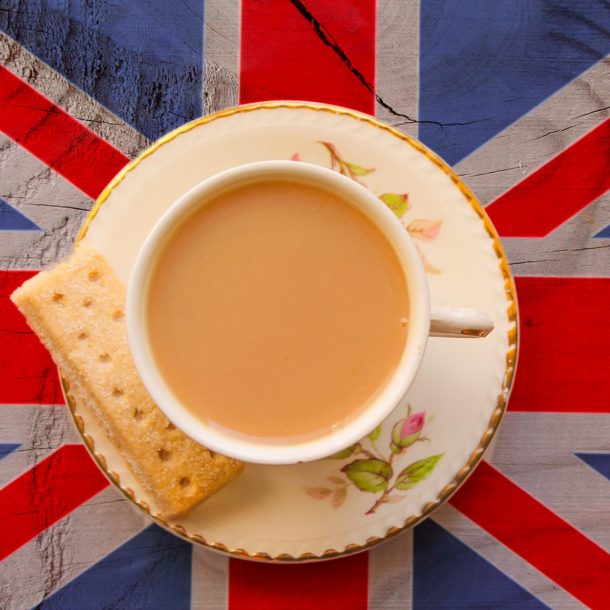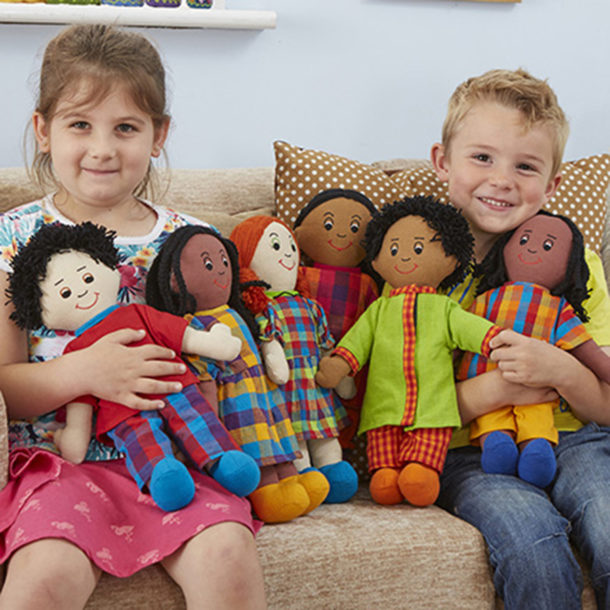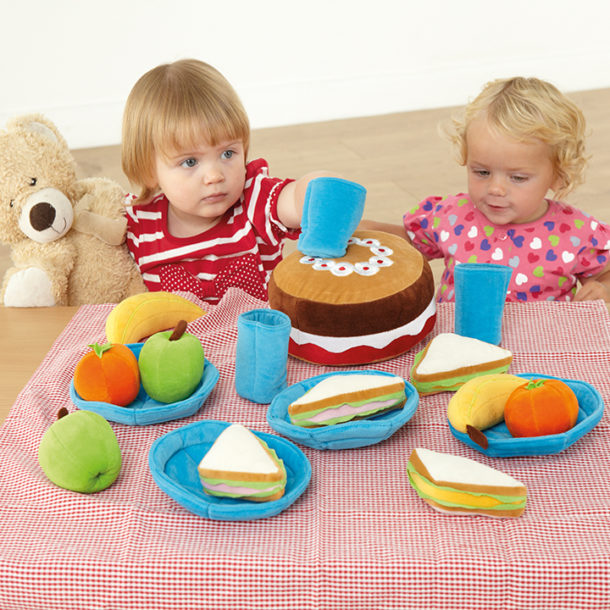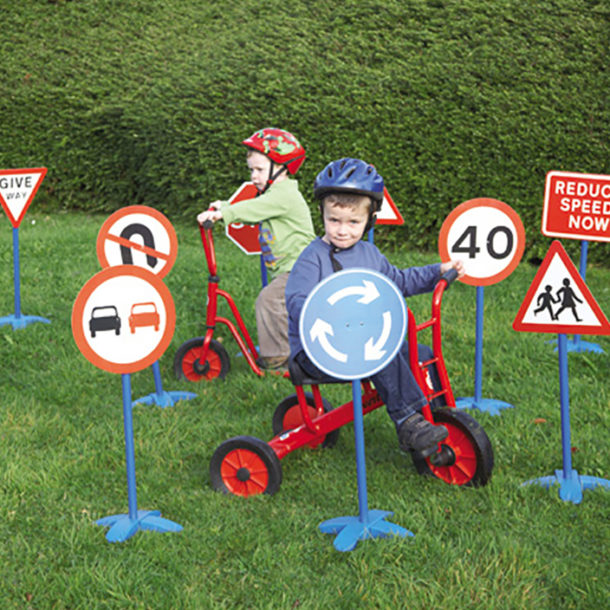1. Traffic Signs Set
- This Traffic Sign set is just one of a range of sets that can be used effectively to help children understand about rules in the world we live in. Road signs are something that children see as they move around their home town or street as well as on their way to nursery. Try encouraging parents to share an activity with their children by providing them with a simple hand-out of signs to look out for.
- There’s a wonderful book called Dinosaur’s Day Out by Nick Sharatt which is full of signs. Children quickly understand the concept that some signs provide information whilst others tell us what we mustn’t do.
- Outside, start with ‘stop’ and ‘go’ to teach basic rules that require quick reactions. Just this one sign can provide a full pre-school group with numerous games to play, such as Musical Statues, What time is it Mr Wolf? or simple races. Observing the sign and learning to respond without delay is a valuable starting point in teaching the importance of rules in our society.
2. Blue-Bot
- Use the screen or monitor to plan what path you want Blue-Bot to take, then send it remotely and watch it perform obediently in front of your eyes.
- Use Blue-Bot to help teach children about taking the right path. Build obstacles onto the Blue-Bot mat to manoeuvre round and help build a better understanding of the need to make the right decisions.
- Blue-Bot needs to follow specific instructions in order to see his way through a maze built with blocks and cardboard boxes. Children quickly learn that making informed decisions and the right choices will lead to success and reward.
3. Superheroes
- We all relate to the superhero being the one who saves the day and proves time and again that good always overcomes evil.
- Dressing up is a favourite activity in early years and a range of clothing and accessories will add value to children’s role play. Careful planning can quickly turn any group time into one where children can act out situations with consequences e.g. a superhero helping mum and baby to cross the road when it is safe. Tidy up time also can take on a new importance if we use it to help children learn about the benefits of working together to achieve a positive outcome.
- Puppet play is a great way to give an adult a voice that children will happily pay close attention to. Using the superhero quartet to teach pre-school the rules we use each day is a clever way of holding a child’s attention and encouraging them to be respectful of others who help us.
I once saw a practitioner develop a set of superhero rules for use in pre-school. “Run and fly outside, not inside” was one example – what a wonderful way to engage children in ‘rules’ using something they love!
4. Basic Maths Board Games
- What better way to teach the need for rules and making the right choices than using board games?
- Turn taking and deciding what to do to try and stay in the game are important life skills so introducing these into daily activities will help the children decide how they want to play and who with.
- Less confident members of nursery can be gently encouraged to participate and linking the games to the child’s interests will help invite them in.
- When play is finished, one other really useful spin off from playing board games is the need for them to be put away carefully so that all the pieces are there for next time. Tidy up time helps keep order in the nursery and the precision needed around sorting board games can really help teach children the importance of care and attention to detail.
5. In the Community Outfits
- The Rule of Law requires us to encourage children to respect people who help us. One really easy way to start this is by using dressing up clothes or tabards to enable the group to take on different roles, portraying the important services we have in our community.
- Set the stage using the town you live or work in as the basis for play. Create your town using tables as buildings and see how the children help each other when you tell them a situation has just arisen at the hospital or the fire station. Use group time to talk about why we need people to do these important jobs and even use parents who work in these different environments to build on these experiences. Many settings have thoroughly enjoyed a visit from the local community police or fire crew – I know our children have!
 The ideas and advice in this blog are by Steve and Christine Doubtfire, directors of Smarties and Cedar House Day Nurseries in Mansfield. They are both qualified teachers with extensive experience in education, for the last nine years focussing on early years. Steve was one of the first men in Nottinghamshire to be awarded Early Years Professional Status and went on to work as an assessor for the University of Northampton. Christine spent 28 years in FE before leaving to join Steve in the nursery. To support her transition to Early Years, she undertook Early Years Professional status followed by a Masters in Early Years Education. Keen to support professional development in the sector, she worked as an assessor on the EYT programme and as a visiting lecturer at the University of Derby.
The ideas and advice in this blog are by Steve and Christine Doubtfire, directors of Smarties and Cedar House Day Nurseries in Mansfield. They are both qualified teachers with extensive experience in education, for the last nine years focussing on early years. Steve was one of the first men in Nottinghamshire to be awarded Early Years Professional Status and went on to work as an assessor for the University of Northampton. Christine spent 28 years in FE before leaving to join Steve in the nursery. To support her transition to Early Years, she undertook Early Years Professional status followed by a Masters in Early Years Education. Keen to support professional development in the sector, she worked as an assessor on the EYT programme and as a visiting lecturer at the University of Derby.

